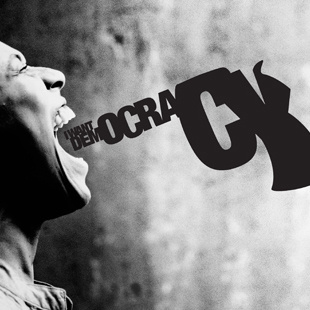Democracy, the ME Revolution’s Main Demand

Mahmoud Sadri looks at the developments in the Arab world and the political future of the Middle East with a stunning optimism. He argues that the current movements in Arab countries inherited their peace-seeking goals from Martin Luther King, Gandhi, the first American liberals, and ultimately Hafez and Rumi. Sadri considers the main demand of the newly emerging movements in the Arab world to be democracy, and regards the Arab communities to be in the transition to democracy.
IRD: What is your analysis of the nature of the current movements in the Arab world?
MS: There are three commonalities in these movements:
First, all are based on "peaceful resistance", i.e. without attempting violence unless to defend spontaneously, as the last measure, against the attacks of the authoritarian autocrats’ operatives. Such a resistance is inspired by the epic of "the civil rights movement" that reached its peak with the leadership of Martin Luther King in the US.
It is interesting that Mr. King himself regarded the political philosophy of Mahatma Gandhi, the Indian independence leader, to be inspirational. Of course, the story does not end here because Gandhi considered the American 19-century liberals such as Henry David Thoreau (the author of the famous essay "Civil Disobedience") and Ralph Waldo Emerson (the author of the monumental essay "Self-confidence") to be inspirational. It seems that the resistance does not end here peacefully, but when American liberals as the initiators of the theory are referenced, it is found that they were under the influence of Persian-speaking poets such as Hafez and Rumi, as well as the approaches of the Eastern religions. Here we should mention the optimistic meaning of the Naser Khosrow poem: “all are rendered by us; it is on one’s guilt”.
The second common point is the essence of democracy found in all of these movements from Egypt and Tunisia to Yemen and Bahrain, and that is the departure point from all the other movements of the twentieth century. The people’s movements in the twentieth century had nationalist, religious or Marxist ideologies, and none of them proposed democracy as their first demand. This evolution results from the collective learning from the experience of the last century and the practical results of the above-mentioned ideologies, despite the people’s ideals that all led to the ruling of a certain class which was a representative of a nationality, religion or even justice itself.
We saw that in the Middle East, the National Revolution of Egypt led to Mubarak, Libya’s anti-monarchy revolution to Qaddafi, and the anti-colonial revolution of Saudi Arabia to the Saud family. Here the new regional movements do not demand religion, nationality or social justice, but the governing of people over people, nothing less and nothing more, as they know democracy is the key to the others: a true democratic governance cannot ignore religion, nationality and social justice, but the governments with the claim of those three are and will be able to abandon democracy, not respecting people’s rights and the privacy of ideology.
The third common point is the role of the youth and the electronic media, i.e. satellite TV (al-Jazeera) and virtual communities (Facebook, Twitter, SMS, etc.). The genesis of the revolution’s media can easily be seen in our history. The Iranian constitutional revolution was the revolution of newspapers and clandestine notices. Governments that had understood the importance of the press confiscated or censored them for their benefit. The twentieth century’s media such as cinema, radio and television were monopolized by government propaganda. But people are always one step ahead of dictators. The Islamic Revolution of Iran was the revolution of Xerox and cassette tapes not tracked on the government’s radar. The current Middle East’s revolution is called the “al-Jazeera” and "Twitter" revolution and is the revolution of internet media and satellite television. Of course, all of those are just tools used by the people’s movements to defeat oppression.
To be continued…

